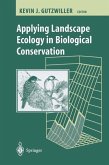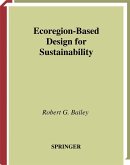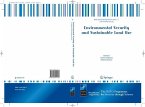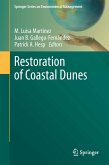Dieser Download kann aus rechtlichen Gründen nur mit Rechnungsadresse in A, B, BG, CY, CZ, D, DK, EW, E, FIN, F, GR, HR, H, IRL, I, LT, L, LR, M, NL, PL, P, R, S, SLO, SK ausgeliefert werden.
"In this excellent synthesis of the diverse European and North American views on landscape ecology, Ingegnoli (Univ. of Milan), a leading Italian scientist in the rapidly emerging field of landscape methodology and assessment, has brought together an amazing amount of information on complex landscape ecology theories, concepts, and indexes. ... Well written; numerous illustrations; excellent glossary. Summing Up: Highly recommended." (M. J. Zwolinski, Choice, March, 2003)
"The author describes the book as providing, 'a wide range of theories, of simple useful equations and of tested methods for the analysis and diagnosis of the ecological state of a landscape, including several case studies'. This is indeed the case; the text is interesting, up-to-date, thought-provoking and fairly comprehensive. ... The book excels in describing the application of landscape ecological methods in areas such as sustainability, conservation biology and planning and the case studies would be useful to any teacher of the subject." (Gary Campbell, Progress in Physical Geography, Vol. 27 (3), 2003)
"It provides a wide range of theories, of simple useful equations and of tested methods for the analysis and diagnosis of the ecological state of a landscape, including several case studies. Further, the diverse European and North American approaches and perspectives have coalesced for the first time. ... This book is written for a broad audience: students of biology and natural sciences, agronomy and forestry, environmental engineering, territorial planning and landscape architecture, as well as for professionals and managers of the environment." (Ethology, Ecology & Evolution, Vol. 14 (3), 2002)









